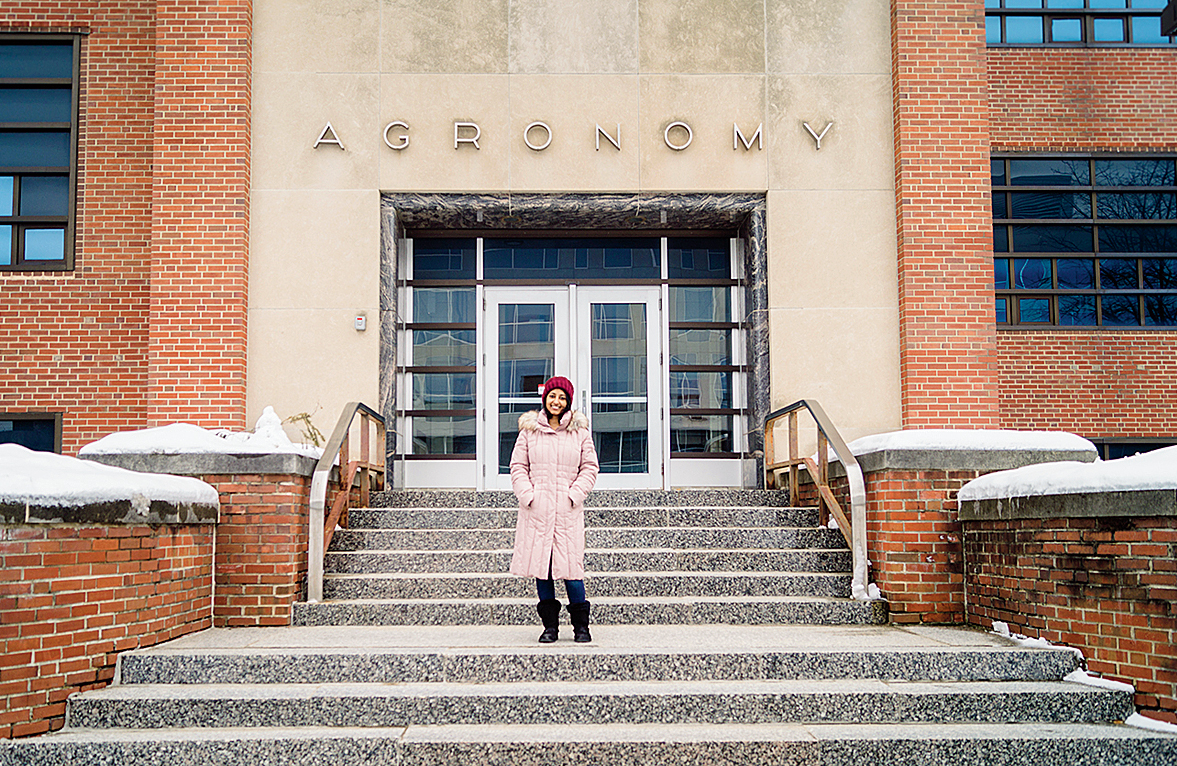I am pursuing a PhD in meteorology — a study of the atmosphere that focuses on weather processes and forecasting — a field considered quite offbeat in India but not in the United States. My chosen institute is Iowa State University (Iowa State, in common parlance) in mid-western US.
Originally, my dream was to study environment at an Indian institute but I did not get the opportunity to do a master’s in that discipline as I did not study biology at the undergraduate level. After having completed my Plus Two from DAV Model School, Durgapur, I joined Lady Brabourne College in Calcutta to pursue a BSc (Honours) in physics. I also studied computer science. A good rank in the entrance exam helped me join a master’s course in atmospheric science in Calcutta University.
Eventually, I learnt that the discipline is quite underdeveloped in India; there is little opportunity to study or do research in the country. And, to do a PhD in the area one has to clear the National Eligibility Test (NET) in geological science. Besides, there is no guarantee of a job even if you qualify NET. In the US, on the other hand, the opportunities are vast. Guided by experts at Edxcare International, an overseas education consultant in Calcutta, I decided to apply to nine US universities for a PhD in atmospheric sciences in 2018. Quite surprisingly, I got offer letters from five of them with substantial financial aid.

'My ultimate aim is to return to India and join ISRO or DRDO as an atmospheric scientist' (Picture sourced by The Telegraph)
Since my research topic closely matched the work of a professor of Iowa State, I chose this institute. I wish to study tropical meteorology, especially the tropical cyclone — a rather appropriate area for me who has grown up close to the Bay of Bengal, one of the crucibles of tropical cyclone. I got a research assistantship for the full duration of my PhD. It pays me $2,000 a month (Rs 1.4 lakh). My tuition fee has been waived.
Ever since I arrived here last September, my studies are going quite well. The work environment is healthy and uplifting. As a research assistant, my main job is to help my adviser with research, parts of which will be included in my final thesis. I also carry out research of my own, alongside coursework. As for facilities, each grad student gets his or her own workstation and there are no fixed work hours. We can stay as late as we want or come in as early as we like to. At the end of the day, it’s all about getting the work done, whichever way we prefer.
It was quite easy for me to adjust to this college town of Ames. Students from across the world make up a huge part of the community here and the town has a tradition of accepting people from all cultures, races and all corners of the earth. I stay off-campus, sharing a two-bed, two-bath apartment with another Indian girl. It is a 15-minute bus ride from the campus. Housing is pretty cheap and I spend a quarter of my paycheck on rent and utilities.
I spend most of my free time in the library with a storybook or at home hanging out with my apartment mates. We have a nice Indian community and we cook at home most days as it is much cheaper. We, however, do eat out and also order in occasionally. I plan on remaining in academia, as a research scientist if possible. There are plenty of opportunities in government as well as non-government organisations throughout the US. I will be visiting the National Center for Atmospheric Research this summer for three months as a graduate visitor, which should give me the opportunity to improve my research related skills.
I wish to do postdoctoral research after my PhD, but I don’t want to teach. My ultimate aim is to return to India and join ISRO or DRDO as an atmospheric scientist.











